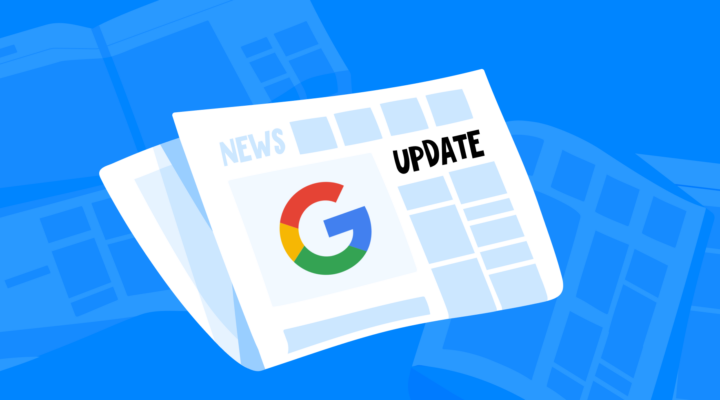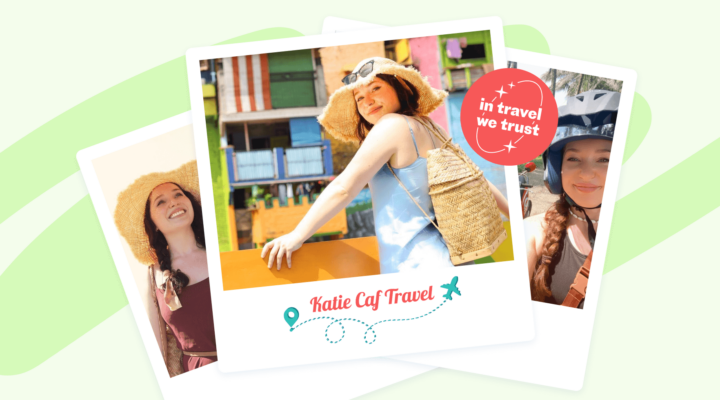Okay, so, Mark, could you start off by telling us where you’re from, your background, and how you got into travel blogging?

I’m from a small country town of around 4,000 people some two hours east of Melbourne, Australia. I lived here all my life, hence my love to travel and see something different.
How did I get into travel blogging? I’d always toss the idea around. I actually started a blog many years ago, around 2005, when my wife was pregnant with her first daughter, and I kept that blog for 12 months.
Even before that, I think I had a small blog when we were planning on going to China to teach English at one stage, but that never happened. But then around 2015-2016, I thought of starting a travel blog as more of a diary.
We, my wife and I, were both working, but we weren’t making a lot of money back at that stage, and I really wanted a way to leverage free entries and free attractions around Melbourne and around Australia, wherever we could go.
So that was the reason I actually started a blog. We had no real goals —I always hoped it would be successful and that one day we could monetize it enough to maybe live off and travel. But I really wasn’t holding my breath for that outcome. Like I said, I was really just hoping that we could go and do some stuff at no cost to us.
So it sounds like you started this blogging journey only in the last decade.
Yeah, it was around 2016. I didn’t really have any great idea about what I was doing for the first 3-5 years. In the end, I was writing stuff as I felt; I opened some social channels, as one does on Facebook and Instagram and wherever else you can try to get your name out. But I really wasn’t up to scratch on keyword research and SEO and stuff like that until about three years ago. I had small kids at the time, so I didn’t have a lot of time to dedicate to blogging at that stage. It was more something that was going on in the background.
Did you have any background in writing or developing websites, or were you self-taught?
I was figuring it out as I went along. My background was working in retail, factories, and the like. I had never done a course in computing except for basic IT in high school (which really only teaches you how to turn on a computer and save stuff on it). So yeah, I had no background at all in web design, content creation, SEO, keyword research, or anything like that.
Was it fairly easy for you to be a self-taught travel blogger? Or did you experience bumps in the road before finding affiliate marketing?
I think you learn as a blogger every day. You become part of so many forums and groups on Facebook, Twitter, etc., where you soak in as much as much information as you can about how to write, research, and structure your sites—keywords, headings, all that sort of stuff. I was part of a close-knit group of bloggers in the early days. I used to talk to them a fair bit, and we would bounce around ideas. This camaraderie was great to have to get my mind wrapped around the things I needed to do to succeed.
Can you talk a little bit about the inspiration behind your blogs? You are in a lot of different niches—how do you choose them?
My wife chooses a lot of them for me. She buys domains and says, “Okay, we’re going to create a website. Here’s the domain, now create it.” So obviously Wyld Family Travel was a natural progression because we had two kids. It started out as a family travel blog, but it wasn’t really gaining much traction because I found that the niche was fairly saturated. It wasn’t until I made the blog all about teenagers and niched it down to city guides for teenagers that we started gaining traction.

Are there any other factors that you consider when choosing a niche?

Well, with most of the places that we’ve written about or have got websites about, we’ve been to numerous times. We’re lucky enough to have friends in Poland, and we’ve been there half a dozen times. That means we had a good grasp of the major areas in Poland; we’ve been to Warsaw, Krakow, Ponzan, etc. So we started Polandtravelexpert.com.
As for the Explore Victoria site, well, we live in Victoria, so that was an easy, natural choice. We had another site called Travels in Gippsland, which was about the specific region we were in, but we left that blog behind and moved on to make the blog about Victoria as a whole. This was because there weren’t a lot of tourism/monetization options in our area. One of the advantages of writing about the state is that Melbourne’s a big selling point—you can talk about tours and hotels, as well as the Great Ocean Road and other areas that are popular with tourists.

We started a Bali site last year called Things to Do in Sanur, which seems to be growing quite steadily. Sanur’s an area for older folk, like ourselves. It’s not as busy as Kuta and Seminyak, so hopefully more people will head that way and make the site just as successful. But honestly, most of our income comes from Wyld Family Travel because it’s the oldest site. Most of the other sites are 12-18 months old; they’re still growing.

What is the biggest challenge that you’ve had to overcome when getting your foot into the blogging door?
I mean, I guess you always have to overcome a lack of knowledge. I’ve been lucky to know a lot of people online who are able to help me out. But as you go, you learn. This is one of those industries where you can learn a lot, but you also need to take what you learn with a grain of salt. Because not everyone wants to tell you what they know and how they know it. Because in the end, we’re all in it to make our own money, especially if you’re in the same niche.
So take things in but also make sure you back up what you learn on your own. Don’t just believe what everyone’s saying. Remember, blogging is more of a marathon than a sprint. So you’ve just got to stay with it. He who blogs the longest wins.
So it seems that the Wyld Family blog is your most profitable one. Is it because it’s the one that you started with?
I think the answer is twofold: it makes the most money, and it’s the one I’ve put the most time into. I find it the easiest to write, too, because most of the cities that I feature on it I’ve actually been to, or I know someone who has been there. We’ve got a template for how we write the articles, so they’re easy to write (even though the articles tend to be a lot longer than the other sites). So, yeah, the main site is the site that makes probably 90% of the money.
I have the sense that you’re a go-with-what-you-know type of person. The more you know a place and the more you’ve been there, the more successful you find your blogging to be.
Definitely. Because you can put your own personal anecdotes in your blog. Anyone can read Tripadvisor or Lonely Planet and go, “Okay, this is the best spot to go here, here, here, here.” But if you’ve personally been someplace, you’re more likely to find little restaurants, parks, and other places that not everyone knows about that. Anyone with a phone and access to ChatGPT can write a tour article about Paris or Melbourne, but that personal touch only comes with actually having been to a place.
Are you a one-man team, or do you use part-time or one-off help?
My team is me and my wife. We’ve been partners since the start. She helps me with editing and writing. I have a VA in the Philippines that I use for maybe 10 hours a week, and hopefully, we’ll get our daughters to join the team soon.

So it’s a little family enterprise, huh?
Yes. My wife and I both have full-time jobs around our website. So I often get up at maybe 4:00-4:30 AM and do about three hours on the website—or more—before I go and log on somewhere else for eight hours. I’d like to say that I could sit in front of a computer for 8-9 hours a day blogging, but I don’t think I could; 4-5 hours is probably my limit. We need to do something else as well, so during the day, we work in community care and disability support.
Blogging actually makes more money than my other job. It used to be the side hustle, but the more jobs you got, the more money you make, right?
Let’s shift gears a little bit and talk about affiliate marketing. How did you find out about affiliate marketing? What was that initial spark that got you interested?

Everyone wants to make money and that’s probably one of the easiest ways to make money. So it was probably a natural progression to start putting affiliate links in. I was initially really hesitant to use a lot of links; I might have only used 1-3 in an article, whereas now I put them in wherever I can and hope that it works. Obviously, you don’t want to flood your article with blue links. But if you can put them in naturally, it works and it works well.
For example, we’ll talk about neighborhoods and things like that. We then put links to hotels and then neighborhoods or attractions. And then we talk directly about an attraction or hotel, so we can double up on different links and things like that. So it’s good to have a widespread grouping of affiliate partners that you can use, which obviously I use through you guys—it’s really convenient. So yeah, we would make most of our money through affiliate marketing, followed by MediaVine, and sponsored content that we publish a few times every month.
Since joining Travelpayouts, what programs have you joined and worked with? What has your experience been like?
I use:
The most profitable are Tripadvisor, and then Booking.com and Agoda. They’re probably the ones that I see pop up the most when I look at the monthly reports.
I like Tripadvisor a lot because they pay per click. As an example, I like to list a lot of luxury hotel links. Because people like to look at luxury hotels, but they may not actually like to book them. We don’t sell a lot of luxury stuff online, being a family-oriented blog, but we still get paid when people click through to them. I mean, who doesn’t like looking at pretty hotels?
Would you recommend Travelpayouts to a novice travel blogger, an experienced travel blogger, or both?
I would say to all. I mean, everyone’s got to start somewhere—everyone’s a novice at some point. I don’t know if there’s a time that’s possibly too early to start adding links to your articles. I find Travelpayouts pretty easy to navigate and create links in. I think it’s an ideal setup for anyone who’s just starting out or anyone who’s experienced.
You guys are certainly easy to get a hold of. I think the secret to a good affiliate network or any good affiliate program is if you can get a hold of someone to talk to about the different programs you’re in. Because in the end, you want your questions answered. And if you’ve got an issue, you want that issue fixed.
Join the Travelpayouts Partnership Platform
Access exclusive tools and the best travel partner programs, including flights, hotels, car rental, insurance, tours and activities, all in one place.
Join TodaySo I know you’ve talked about links, but could you speak to the different partner tools you use?
At one stage, we were very widget-dependent, but as of late, we’ve sort of gone away from using as many widgets. I tend to use more in-context links now. In-context links seem to be working best at the moment, but in saying that, we probably still have a widget or two in every article. Sometimes widgets are good to fill the gap between different sections of your website when you haven’t got enough original pictures and things like that.
If you could turn back time to the moment you started blogging, what advice would you give yourself?

I would say go out and learn about your keywords and SEO first. Make sure your structure, keywording, and the way you set up your pages are correct. Because unless you do that, no one’s going to see your page, and no one’s going to click.
Basically, I wasted the first four years of blogging because it was a hobby and I didn’t really care too much about where it was going to go.
If I were to start over again, I would have spent more time studying SEO and the like. If I had that knowledge from the beginning, I could probably be making double what I’m making now.
So my advice is to go out and learn and ask a heap of questions; hopefully, your transition to making money will come sooner rather than later.
I think finding a community is also important. There are so many SEO groups and blogging groups on Facebook; there’s no shortage of people asking and answering questions. But remember not to take everything at face value. Take everything you read and check for yourself whether the information is valid. There are a lot of so-called experts out there who don’t really know what they’re talking about. It’s great to take in as much information as you can, but definitely find your own path in it.



